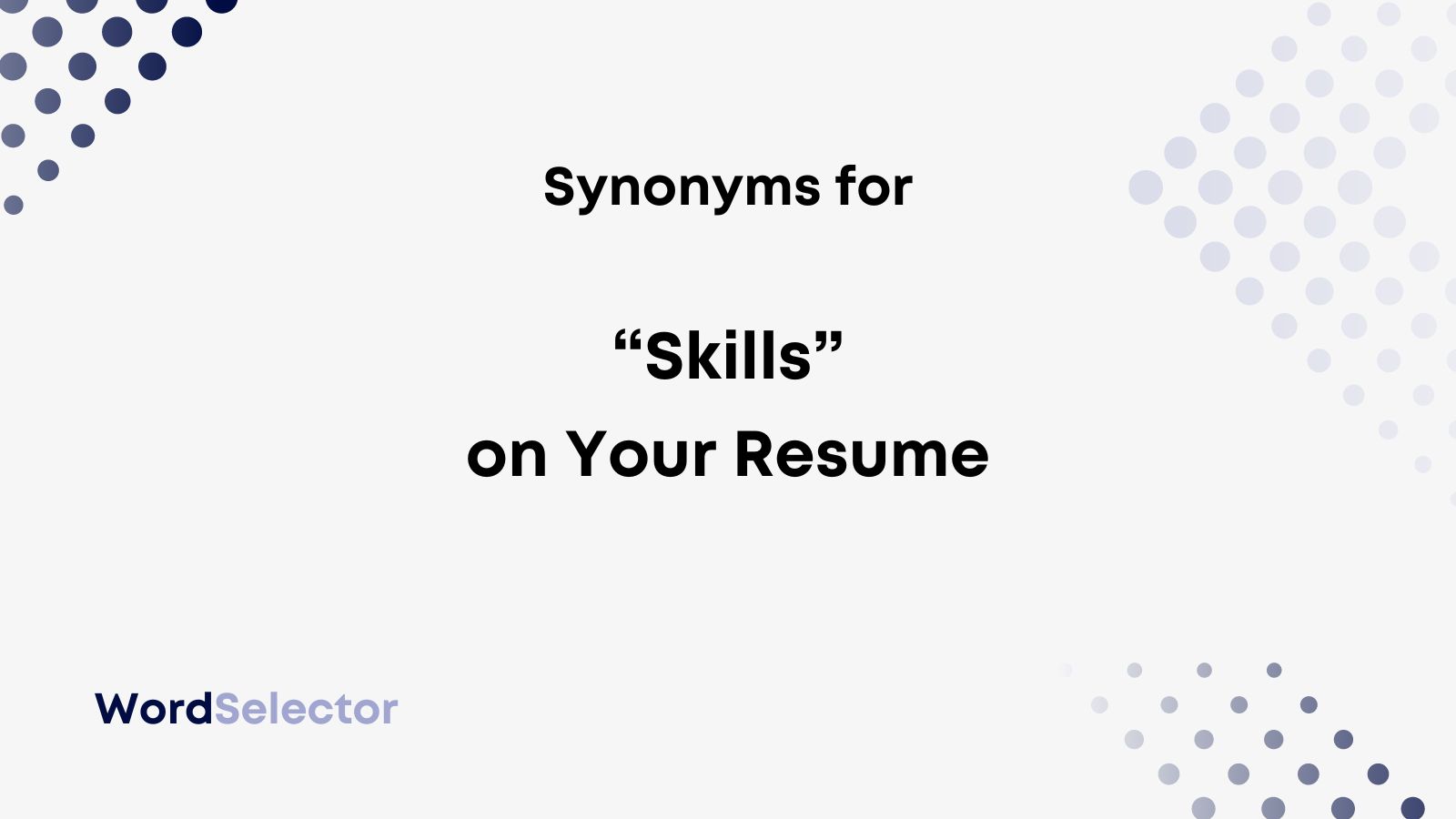Do you want to talk about your technical skills on your resume? Well, that’s always good, as it’s what employers tend to look out for to see what you can do.
However, “skills” itself may not be an effective term. So, this article will look into another word for “skills” that might help to spice up your writing.
Skills Synonyms
- Expertise
- Confident in my ability to
- Talents
- Abilities
- Assets
- Experience
- Learned from
- Practiced
- Studied and understood
- Skill set
- Know-how
- Knowledge base
KEY TAKEAWAYS
- “Skills” are always useful on a resume, but you might want to use a less common term.
- “Expertise” is a better synonym if you want something that won’t appear in everyone’s resume.
- “Confident in my ability to” is a reassuring phrase showing an employer what you’re made of.
There’s more to say, and you should read on to learn more about the best alternatives. We’ve explained more about the most useful ones and how to get them correct.
The final section also explains more about “skills.” So, if you want to learn whether it’s okay to include “skills” on your resume, you know where to go.
Expertise
“Expertise” is another word for “skills” that works well in resumes. It suggests you are an expert in a field, meaning you have a lot of experience in it.
The Merriam-Webster Dictionary defines “expertise” as “the skill of an expert.”
Using “expertise” is great if you want to show an employer what you can do. As long as you relate your expertise to the job role, you’ll make yourself a very desirable candidate.
Of course, you must always be careful about claiming “expertise” when applying for a job. If you can’t back it up with evidence, you might get caught out later if an employer chooses to hire you.
For instance, if you claim to have expertise in coding, you will need to prove that at some point. If your boss asks you to code a program for him and you aren’t an expert like you claimed, it won’t take long for them to figure out that you lied on your resume.
So, as long as you don’t lie, “expertise” is great to include. It’s just as effective as “skills,” meaning that both terms work well.
These are some great examples to help you understand it:
My expertise in this field has allowed me to climb the ranks easily. I hope you will see that from my track record.
I have plenty of expertise that I’m looking to bring to the office. There is so much that I can do to improve the efficiency of this company.
Confident in My Ability to
“Confident in my ability to” is a great phrase to replace “skills.” You can use it to show that you have abilities that correlate well to the job you’re applying for.
Also, starting the phrase with “confident” shows you are certain. It shows you don’t doubt your abilities, making it easier to convince an employer to hire you.
The only issue you may have with “confident in my ability to” is that it only works as part of a sentence. You must say “I am confident in my ability to;” otherwise, it wouldn’t make much sense.
For instance, you won’t be able to start listing abilities after the phrase. “Skills” allows you to list your skills in bullet points (which is easier to read). “Confident in my ability to” does not allow you to list them.
So, both phrases are effective. “Skills” works better if you want to list things, though. “Confident in my ability to” works best if you want to include it in a sentence.
Take a look through the following examples to help you:
Naturally, I am confident in my ability to direct a team. I have repeatedly proven that I can complete group projects to a superior quality.
I am confident in my ability to deliver high-quality goods. That’s why I’m a good fit for this production role.
Should You Say “Skills” on Your Resume?
You should include “skills” on your resume to some degree. There’s nothing wrong with including the term “skills.” In fact, it’s quite formal and is certainly appropriate in many written contexts.
While you might not include a list of “skills” in something like a cover letter, a list would be very useful when writing a resume. After all, a list gives an employer a comprehensive rundown of all your skills and abilities.
The more you can relate your list of skills to the job role, the better you’ll look to an employer. You can show them straight away that you are a good fit for the job by getting your skills correct.
Here’s a quick example to show you how to list your skills:
Skills:
– Excellent communication skills
– Well-versed in C#
– Fluent in three languages (French, English, Arabic)
You can include as many skills as you want. We suggest keeping them relevant, but the more skills you have, the better you’ll look.
Keep this page bookmarked for future reference! That way, you’ll always have a list of alternatives ready for when you don’t want to use “skills.”

